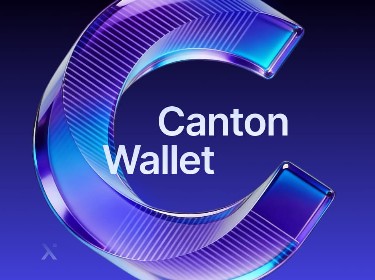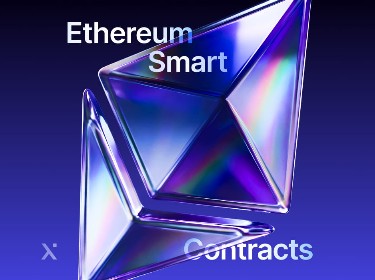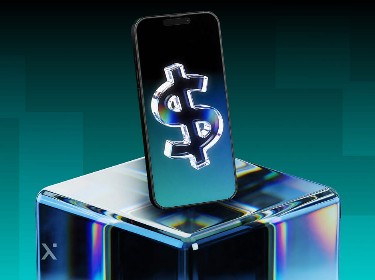Ethereum has already become a top choice for the development of dApps. Yet, there’s Cardano – another big player that gradually wins users’ attention. But will it meet the high expectations of the cryptocurrency community?
Ethereum and Cardano are two of the largest competing cryptocurrency projects based on smart contract technology. Both blockchains demonstrate positive dynamics and great investment prospects and pursue the goal of creating a single decentralized system for financial transactions and digital contracts for decentralized applications and other developments.
However, both Ethereum and Cardano possess their own unique features and capabilities that need to be analyzed and attended to before selecting the most suitable blockchain for your project.
In this article, we will compare Ethereum and Cardano, consider their core differences, and find out whether the Cardano project can become an Ethereum killer.
A closer look at Ethereum
Ethereum is an open-source blockchain platform that acts as a base for the creation and deployment of decentralized applications (dApps). Ethereum first launched the concept of a smart contract into the public arena — a program that performs the functions of a legal document and defines the rules of interaction between the parties to the contract.
Smart contract development services simultaneously solve several problems traditionally associated with legal contracts (censorship, fraud, downtime, and third-party interference). Contracts have become the feature that has fundamentally singled Ethereum out among hundreds of other projects.
On top of this, Ethereum is characterized by the key innovative advantages of blockchain, including the immutability of recorded data, the complete absence of censorship due to the implemented consensus principle, security, and immunity to hacking.
Need a reliable Ethereum development and consulting partner? Let’s get acquainted
What is Cardano?
Cardano is a multi-level blockchain platform operating on the basis of the Proof-of-Stake consensus.
Just like Ethereum, Cardano is a safe and reliable ecosystem for creating dApps. The platform’s key feature is the Ouroboros algorithm, which boasts a high level of security that does not require additional protection measures.
These days, Cardano is recognized by the expert community as one of the most successful and effective dApp platforms. The key advantages of the platform that distinguish it from its analogs include:
- The presence of regulatory supervision
- 100% confidentiality of any activity on the platform
- High level of client security due to innovative algorithms
- Multilevel system and democratic principles of governance
- High speed of transaction confirmation
If you’re looking to actually build on Cardano, partnering with a qualified Cardano smart contract development company can help turn these theoretical advantages into production-grade dApps.
Ethereum vs Cardano: key differences
Both Cardano and Ethereum supply similar blockchain products.
Smart contracts can be programmed on both platforms and decentralized applications can be deployed. However, there are some key differences between networks.
![]()
Check out the video below in which our business analyst compares Ethereum and Cardano based on multiple factors to help you decide which one best suits your project needs.
Development approach
![]()
The key difference between Ethereum and Cardano is their approach to implementation and development. Ethereum is characterized by practicality and rapid implementation of changes, while with Cardano, each component of the architecture is carefully checked and tested by a group of experts, and only then is it implemented. Because the creators of Ethereum spent less time on theory and moved more quickly, the product became a pioneer in the niche of smart contracts and the second-largest blockchain project in the world by capitalization.
As for target audiences, Vitalik Buterin’s brainchild first conquered developed countries, while Cardano initially focused on developing countries and on interaction with the governments of these countries. The creators of Cardano have chosen a strategy of demonstrating the usefulness of their product in niches where blockchain technologies are currently most in demand.
Flow vs Ethereum: which blockchain is more suitable for NFT development?
Scalability
As for scalability, Cardano is superior to Ethereum. After the implementation of the Hydra scaling solution, the system will be able to process up to 2.5 million transactions per second with an up-to-date pool of validators.
Ethereum’s transaction processing speed ranges from 10 to 30 transactions per second, and in this regard, Ethereum is still far behind many of its younger competitors.
Market capitalization
At the time of writing, Ethereum and Cardano are among the top 10 cryptocurrencies in terms of market capitalization, with $159 billion and $10.86 billion respectively.
The high market capitalization of Ethereum is due to the fact that large and institutional investors have put a lot of money into this coin. Today, many investors believe in the prospects of Ethereum, and the capitalization of Vitalik Buterin’s development is steadily growing against a background of ever-optimistic sentiment.
The considerable capitalization of the Cardano project, measured in tens of billions of dollars, is a reflection of the stability of the system and its social significance. Many investors are interested in ADA, as the coin has serious growth potential.
Smart contract features
![]()
The Cardano system uses the Extended Unspent Transaction Output (eUTXO) accounting model, which is an updated UTXO model of Bitcoin with the option of smart contracts. It is characterized by the support of several digital assets and functions, similar to regular cash. In turn, Ethereum uses the Account/Balance model by which coins are stored in users’ financial accounts, as with commercial banks.
The eUTXO Cardano model simplifies smart contracts and enables developers to create and run decentralized applications with less effort when compared with Ethereum. However, the functionality of Cardano smart contracts was activated not so long ago and did not gain enough popularity for the system to be tested in the same “combat” conditions as Ethereum.
Get more insights into this UTXO-based blockchain and dApp development platform
Ethereum vs Cardano: which platform to choose for your project?
Cardano and Ethereum are in many ways similar, but each has its own characteristics that should be taken into account when choosing where to deploy your dApp.
As far as Cardano is concerned, the platform relies on scalability and flexibility, so if these parameters play a fundamental role in the implementation of your dApp, then this ecosystem should be preferred. This applies to fast-growing mass-use projects such as social networks, hosting projects, and many more. In addition, Cardano’s strong point is its high energy efficiency, so if sustainability is among your primary concerns, it would be logical to give preference to a greener platform. And given that the “green” trend has now captured almost all areas of business, choosing Cardano gives a great reputational bonus to any project.
Ethereum, for its part, is distinguished by its longevity and reliability. It currently boasts the largest number of dApp deployments, making it the most popular platform among developers.
A whole industry of developers has formed around its ecosystem, so the choice in favor of Ethereum should be made by those interested in a developed professional community and the stability of the ecosystem in which the dApp is deployed.
One more important point is the cost of transactions. At the moment, in terms of the availability of transactions within the system, Cardano is unambiguously in the lead. So the platform could become a worthy alternative to Ethereum, from where developers often transfer their projects to other sites with less workload and lower commission.
See this detailed overview of top ten blockchains
Can Cardano surpass Ethereum?
So, is the Cardano platform a real ”killer” of Ethereum after all?
To date, the answer is negative.
Ethereum has been and remains a powerful blockchain project, characterized by reliability and security. Cardano also has a negative experience already with smart contracts, since problems arose during the launch, which caused many developers to postpone the idea of launching on Cardano. Moreover, the coin has a competitor breathing down its neck in the shape of Solana, a coin that has recently been developing comprehensively.
Can Cardano manage to surpass Buterin’s brainchild in terms of capitalization? It’s too early to talk about this at the moment, and it’s far too early to talk about a complete “murder” of Ethereum.
Although some really talented and experienced enthusiasts are working on the project, developers will still have to prove the functionality of Cardano-based smart contracts. And if we take into account that the team takes a lot of time over each update due to the thoroughness of their approach, it is difficult to predict in which direction the project will move and whether it will be able to knock Ethereum out of the market.
Top 5 Ethereum projects
![]()
As of today, several thousand decentralized applications, characterized by a high level of data security, have been launched on the Ethereum blockchain. The top startups on Ethereum include projects such as Uniswap, Chainlink, MakerDAO, Axie Infinity, and Aave.
Uniswap
Uniswap is the world’s most popular decentralized exchange where you can trade coins for coins. The peculiarity of this development is that the system uses an automated market maker system. With this, the basic liquidity pools are managed by smart contracts as opposed to the traditional order book, as happens on traditional centralized exchanges. A unique pricing algorithm determines the market price of each coin presented on the exchange.
Chainlink
Chainlink is an Oracle platform linking smart contracts with third-party data. The system can receive data such as weather reports or currency exchange rates, process them using an established algorithm, and, based on the data received, follow the instructions set.
For example, according to the terms of a smart contract, insurance payments can be credited automatically when a hurricane is recorded in the area where the insured person lives. Chainlink is supported by the ERC-20 crypto token and runs on the Ethereum network.
MakerDAO
MakerDAO, a lending and borrowing service without intermediaries, operates on the Ethereum platform. Loans to participants are paid in cryptocurrency. The problem of the instability of crypto values has been solved by linking loans to the Dai stablecoin, which in the future will become fully decentralized, according to the company’s plans.
Axie Infinity
An Ethereum-powered role-playing game based on NFT tokens owned fully by the players. In addition to the entertainment process that this gaming product provides, Axie Infinity allows you to make money on the resale of NFT assets that have collectible value.
Aave
Aave is a decentralized lending and borrowing platform that generally repeats the functionality of similar dApps. After attracting multimillion-dollar investments from top venture players, the Aave platform has an impetus for development in this niche.
Check out this novel DeFi solution with a unique approach to decentralization and token distribution
Top 5 Cardano projects
![]()
There are fewer applications created on the basis of Cardano than on competitive Ethereum, but there are many noteworthy ones among them, including Ardana, Empower, SundaeSwap, RaySwap, and World Mobile.
Ardana
Ardana is a crypto coin designed specifically for fast and inexpensive transactions. You can use this coin for payment, as well as for trading, stacking, or mining.
Ardana members are free to vote on upcoming changes and updates. According to the logic of the platform, token holders receive a reward from each operation.
Empowa
Empowa is a long-term project based on Cardano. Its mission is to provide affordable housing to the people of Africa through decentralized financing.
The project was launched in 2021 and at the time of its official opening had already attracted a serious amount of funding long before its full deployment.
SundaeSwap
SundaeSwap is based on fully decentralized hosting on IPFS (Interplanetary File System). The Sundae coin acts as its own token, which was provided with the initial pool of bets. Today, users can receive Sundae tokens by placing ADA bets and through a betting pool. Tokens are distributed among users transparently and securely.
RaySwap
RaySwap is a decentralized Cardano-based application that performs the functions of a savings wallet. It allows users to earn 5% per year and exchange tokens in a variety of paired combinations. In addition, an autonomous market maker and various yield farming technologies are integrated into the platform. Experts currently rate RaySwap as one of the most ambitious, effective, and functional Cardano-based dApps.
World Mobile
World Mobile focuses on secure mobile communications integrated into the Cardano blockchain. The mission of the project is to solve the difficulties associated with connecting to cellular communications by replacing them with Wi-Fi. The application is distinguished by a special digital identifier that makes it possible for the user to access online banking systems.
The World Mobile Token allows people from third-world countries to enjoy economic benefits that have been available to Western consumers for a long time. This project has already allowed the creation of smart villages in various parts of Africa, providing residents of the continent with access to advanced technologies and unlimited use of information.
Closing thoughts
Despite external similarities, Ethereum and Cardano are different from each other. Cardano focuses on security, achieved through systematic testing of innovations by a group of scientists and developers. Ethereum, as an ecosystem, is less controlled, but it allows you to make changes faster and improve them by testing innovations in practice.
The key difference between the platforms is that Ethereum successfully works with smart contract technology, while Cardano developers are still working on improving their smart contracts. Despite this, Cardano has its advantages. In particular, it is characterized by lower power consumption, better scalability, and higher throughput thanks to the Ouroboros consensus.
Which platform should you choose? The decision should be based on the goals of the developers or investors. In any case, both tokens have huge potential and represent highly reliable and efficient systems for dApp development.
If you are set to deliver your own ground-breaking blockchain solution but don’t know where to start, reach out to our professional custom blockchain development team for help. With 10+ years of successful experience in blockchain development and consulting, our experts know what it takes to deliver a thriving blockchain project.
Contact us and let’s get your project started today.




